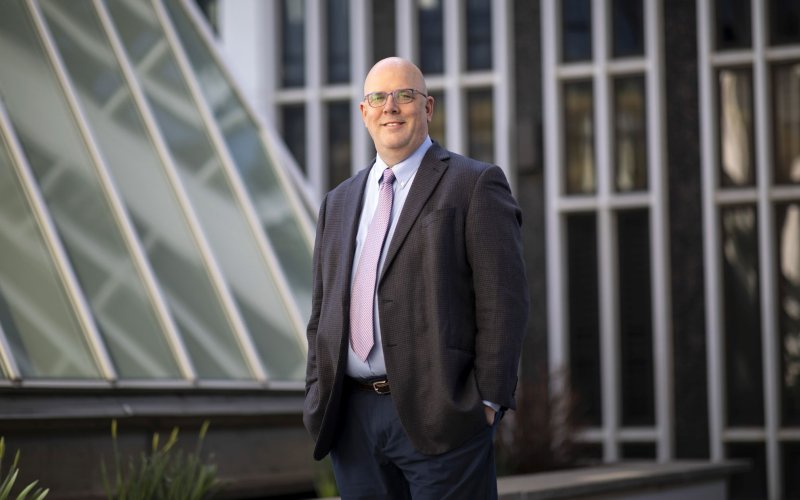Helping California Understand the Impact of Convictions on Employment

ALBANY, N.Y. (March 30, 2023) — Should an arrest or conviction in your history automatically make you unemployable? Research by Shawn Bushway, professor of public administration and policy, suggests otherwise.
Now Bushway is sharing his research and expertise with stakeholders in the state of California. In a webinar last month entitled “The Research Case for Hiring People with Criminal History Records: California in Focus,” Bushway worked to rebut pervasive myths that a prior crime is always a reliable predictor of future behavior and that anyone with a criminal record is inherently riskier than anyone without.
In February of 2022, Bushway, then on leave from UAlbany and working as a senior policy researcher at RAND Corp., published a paper in the journal Science Advances showing that more than half of unemployed men in their 30s in the United States have a history of being arrested or convicted of a crime during a tight labor market. Employers who eliminate job-seekers with records severely limit their ability to hire enough workers.
The recent California webinar was done through RAND, a nonprofit global research organization based in Santa Monica. About 250 people attended, including employers, government agencies and nonprofits. Also speaking was Kevin Kish, the director of the California Department of Human Rights, the largest civil rights agency in the country, and two Californians who presented their own experiences as employees with criminal histories. Shelley Winner spoke about her difficult experience applying for her first job at a Microsoft store after her release from prison on drug charge. Last year, she was Microsoft’s global leader for BtoB Surface sales. Ken Oliver spoke from his unique vantage point as both a vice president of Checkr.org, a leading background check company, and someone who was incarcerated for 24 years.
Bushway says it’s important to consider real risk, taking into consideration the age of the applicant and the length of time since the conviction. “A 22-year-old with no conviction on his record could be a higher risk than a 35-year-old with one prior five years ago,” he said.
Developing policies to increase employment for people with records has multiple benefits: Employers get workers, job seekers get jobs and crime goes down.
The work presented at the webinar reflects Bushway’s 20-plus years of research on the impact of convictions on employment. Some of his earlier work formed the basis of the U.S. Equal Employment Opportunity Commission’s 2012 guidance to employers on the use of criminal background checks for employment. That guidance also called for employers to rely on experts in this field. For the past 10 years, Bushway has conducted research that attempts to help employers hire good employees who have criminal history records.




